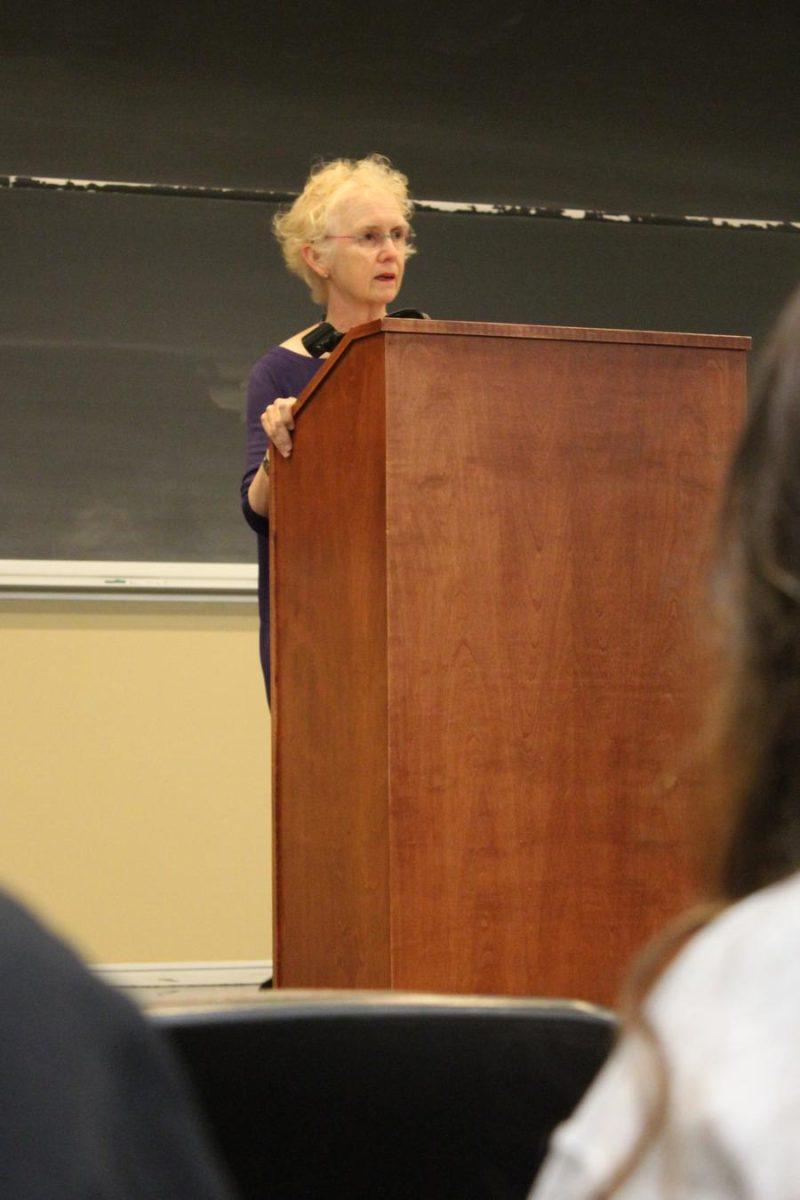Winnifred F. Sullivan spoke about the nuances of the death penalty and its relationship with religion to a room of about 100 people on April 6 in Wrench Auditorium.
“The death penalty is always relevant — the U.S. is the only developed nation to have it, and also in the context of recent interest in prison reform and criminal punishment, there seems to be interest in it,” said Richard Callahan, associate professor and chair of the religious studies department.
Sullivan’s speech was the ninth annual Distinguished Lecture on Religion and Public Life hosted by the department of religious studies, which hosts a distinguished scholar each year for a “public talk of relevance to both scholars of religion and the general public.” She is a professor and chair of the department of religious studies at Indiana University and affiliated professor of law at the university’s Maurer School of Law.
“I am not going to speak for or against the death penalty,” Sullivan said at the start of her speech.
Sullivan acknowledged that church and state has become an “old-fashioned topic” that’s shifted recently to church and politics. She said that though the death penalty is currently used for less than 1 percent of cases that are brought to trial, it still does “vital political work.”
Sullivan discussed the role of the jury in a death trial. She said the jury is the ultimate decider of the fate of the defendant.
“Jurors must take responsibility for their decision on whether [a] defendant should live or die,” Sullivan said.
The jury is not allowed access to any outside resources when they make the decision, Sullivan said. The only information they are given is what is said in the courtroom and the laws as they are told to them. “The jury is not allowed a bible,” Sullivan said.
“I thought this was interesting and I got started on this project to try to figure out why that was,” Sullivan said.
She also questioned former Supreme Court Justice Antonin Scalia’s stance on the death penalty. Scalia once said that “Christians aren’t afraid to die” and that they believe the government is exercising divine power.
He said there is a tight link between religion and the death penalty, and that it fits with the broader narrative linking conservatism with religiosity, claiming that a reason why it’s still so popular in the U.S. is due to the fact that Americans believe in free will.
Sullivan called this stance into question. “It’s not clear that Scalia is speaking for all Christians,” she said. “Scalia gave himself the role of speaking for all orthodox religion.”
Sullivan said the use of the Bible in courtrooms is not uncommon, and the meaning of the Bible changes as time passes and people interpret it in different ways. She said that in 1880, there were already 2,000 different versions of the Bible available to Americans.
Sullivan said a death penalty jury becomes isolated during the trial and eventually starts to pressure a sole indecisive juror into a decision.
“The decision ends up being a distinctly accidental one,” Sullivan said. “It’s not a legal but an ethical judgement.”
_Edited by Kyle LaHucik | [email protected]_








